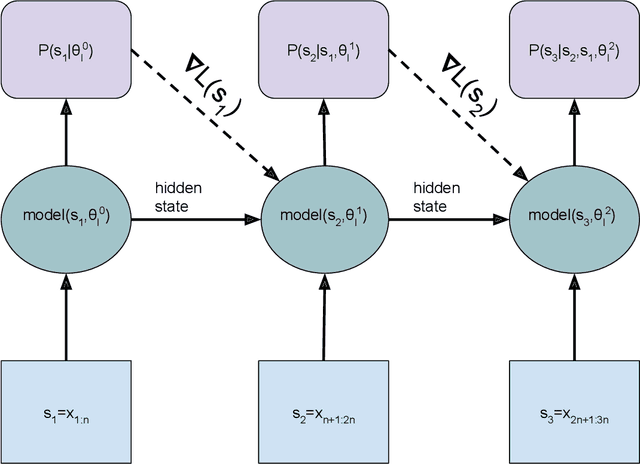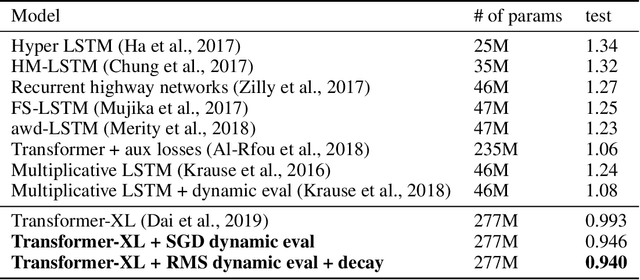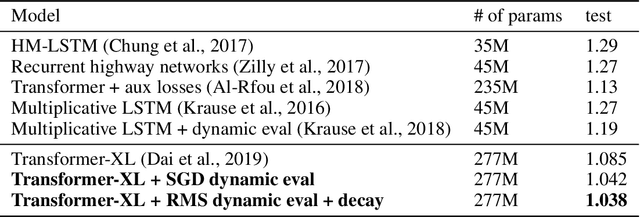Dynamic Evaluation of Transformer Language Models
Paper and Code
Apr 17, 2019



This research note combines two methods that have recently improved the state of the art in language modeling: Transformers and dynamic evaluation. Transformers use stacked layers of self-attention that allow them to capture long range dependencies in sequential data. Dynamic evaluation fits models to the recent sequence history, allowing them to assign higher probabilities to re-occurring sequential patterns. By applying dynamic evaluation to Transformer-XL models, we improve the state of the art on enwik8 from 0.99 to 0.94 bits/char, text8 from 1.08 to 1.04 bits/char, and WikiText-103 from 18.3 to 16.4 perplexity points.
 Add to Chrome
Add to Chrome Add to Firefox
Add to Firefox Add to Edge
Add to Edge